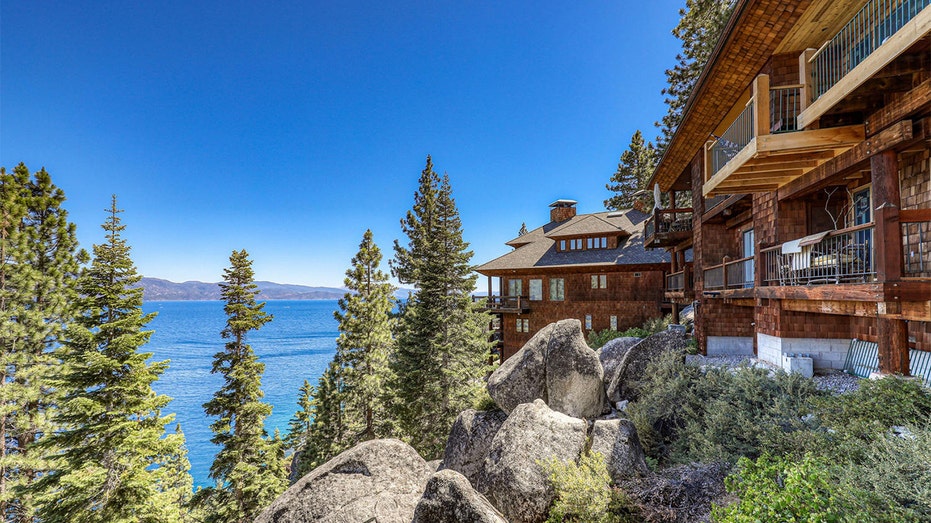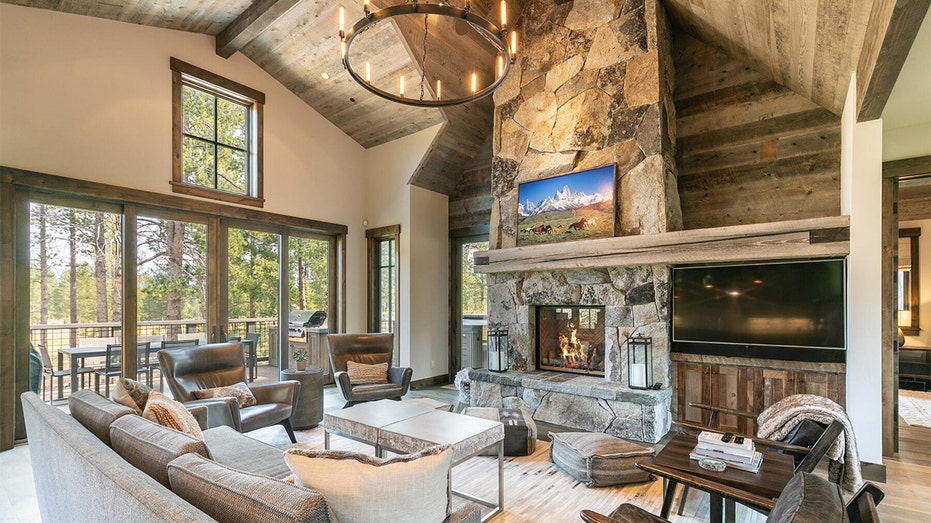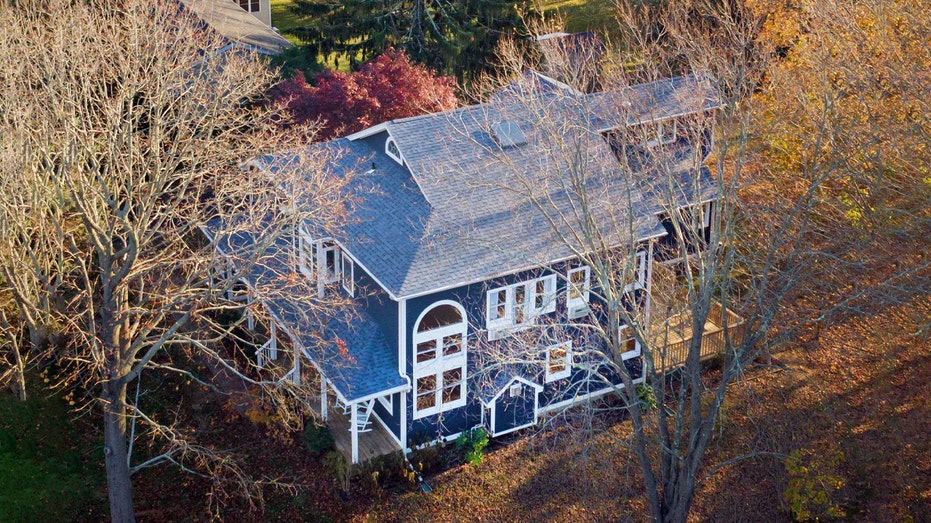Vacation rental company sees best start to year
VRBO president Jeff Hurst joins ‘The Claman Countdown’ to discuss 2021 travel demands.
Vacation rentals located on the outskirts of major cities from the edge of Massachusetts to the Bay Area are seeing a surge in demand.
Consumers looking to escape, however, are faced with two problems: These highly desired rentals have been fully booked months in advance or, in some cases, have been taken off the rental market entirely, real estate agents told FOX Business.
As a result, consumers looking for spots in popular vacation areas like Cape Cod, Lake Tahoe or even the Connecticut shoreline – just outside of New York City – are seeing very few options in the rental market.
Homes alongside State Route 28 in Crystal Bay, Nevada. (Chris Beck/ Sierra Sotheby’s International Realty) ( ) CLICK HERE TO READ MORE ON FOX BUSINESS "People started booking this winter because they knew things are going to book up," Breck Overall, an agent with Sierra Sotheby's International Realty in Tahoe, told FOX Business. Many homeowners, according to Overall, have also decided to buy and use the homes themselves rather than rent them out, making the rental market even smaller. As a result, "ownership may be your only passport" to places like Lake Tahoe, Overall said. "If you don't own in Tahoe, there is no guarantee that you're going to be able to come vacation here with your family," Overall said. GET FOX BUSINESS ON THE GO BY CLICKING HERE The Bay Area, meanwhile, is the "feeder market" for buyers as well as vacation renters in the Lake Tahoe area, he said, and the demand "does not seem to be diminishing at all." So, with few options to rent, Overall has been seeing an increasing amount of consumers "converting to purchasing real estate" instead. Jennifer McCartin, an agent with Sotheby’s International Realty in Cape Cod, told FOX Business that the same phenomenon is happening in the Massachusetts area. Home in Truckee, California. (Chris Beck/ Sierra Sotheby’s International Realty) "Homes that in the past were typically used as rentals have been sold and those people who have bought them are using them for their sole use and not renting them, which is depleting our rental inventory," she said. She agreed that the other issue is that renters decided to book extremely early. In fact, McCain first started seeing interest as far back as March 2020, when the pandemic started. BIDDING WARS HEAT UP AMID RED-HOT HOUSING MARKET "It's crazy … I've got houses that I have been renting through the winter, which is not very typical of our area," she said. When McCain used to drive through Hyannis to Osterville, Massachusetts, along the water at night she would pass by homes with one or two lights on inside. Now, she says it's "like the city skyline," even during the winter months. And when the homes are available, they will cost a pretty penny. McCain said her least expensive rental cost about $4,000 per week. Some of her most expensive houses have a weekly price tag of about $15,000. On top of that, most landlords are requesting a minimum stay of at least two weeks. Real estate agent John Campbell of Page Taft-Christie's International Real Estate, who has been selling residential and commercial real estate along the Connecticut shoreline for more than 20 years, is seeing the same trend. US HOUSING MARKET IS NEARLY 4M HOMES SHORT OF BUYER DEMAND "The demand in our area is great but inventory is ridiculously low," Campbell told FOX Business. "Between the towns of Branford, Guilford and Madison, there are a total of 25 homes for rent, including small condos." Campbell said this is a fraction of the inventory that is normally available. The reduction in inventory started last year when there was a migration of renters and buyers from New York, New Jersey and parts of Pennsylvania, according to Campbell. However, he said this demand was "further fueled by unrest in large cities" across the nation. "I really think it made homeowners pause and ask themselves where they wanted to position themselves if we continued with an extended period of uncertainty," he said. In doing so, though, many opted to rent first to further understand a community prior to purchasing, he said. Source: Read Full Article


